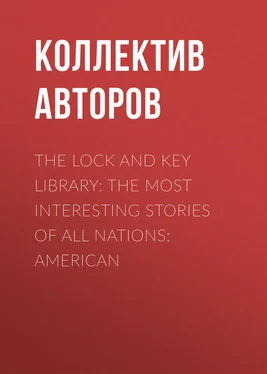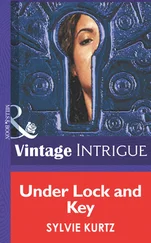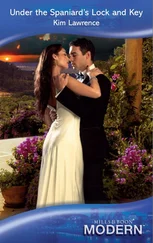Коллектив авторов - The Lock and Key Library - The most interesting stories of all nations - American
Здесь есть возможность читать онлайн «Коллектив авторов - The Lock and Key Library - The most interesting stories of all nations - American» — ознакомительный отрывок электронной книги совершенно бесплатно, а после прочтения отрывка купить полную версию. В некоторых случаях можно слушать аудио, скачать через торрент в формате fb2 и присутствует краткое содержание. Жанр: foreign_antique, foreign_prose, на английском языке. Описание произведения, (предисловие) а так же отзывы посетителей доступны на портале библиотеки ЛибКат.
- Название:The Lock and Key Library: The most interesting stories of all nations: American
- Автор:
- Жанр:
- Год:неизвестен
- ISBN:нет данных
- Рейтинг книги:5 / 5. Голосов: 1
-
Избранное:Добавить в избранное
- Отзывы:
-
Ваша оценка:
- 100
- 1
- 2
- 3
- 4
- 5
The Lock and Key Library: The most interesting stories of all nations: American: краткое содержание, описание и аннотация
Предлагаем к чтению аннотацию, описание, краткое содержание или предисловие (зависит от того, что написал сам автор книги «The Lock and Key Library: The most interesting stories of all nations: American»). Если вы не нашли необходимую информацию о книге — напишите в комментариях, мы постараемся отыскать её.
The Lock and Key Library: The most interesting stories of all nations: American — читать онлайн ознакомительный отрывок
Ниже представлен текст книги, разбитый по страницам. Система сохранения места последней прочитанной страницы, позволяет с удобством читать онлайн бесплатно книгу «The Lock and Key Library: The most interesting stories of all nations: American», без необходимости каждый раз заново искать на чём Вы остановились. Поставьте закладку, и сможете в любой момент перейти на страницу, на которой закончили чтение.
Интервал:
Закладка:
I need hardly point out that there is a distinction and a difference between short riddle stories and long ones – novels. The former require far more technical art for their proper development; the enigma cannot be posed in so many ways, but must be stated once for all; there cannot be false scents, or but a few of them; there can be small opportunity for character drawing, and all kinds of ornament and comment must be reduced to their very lowest terms. Here, indeed, as everywhere, genius will have its way; and while a merely talented writer would deem it impossible to tell the story of "The Gold Bug" in less than a volume, Poe could do it in a few thousand words, and yet appear to have said everything worth saying. In the case of the Sherlock Holmes tales, they form a series, and our previous knowledge of the hero enables the writer to dispense with much description and accompaniment that would be necessary had that eminent personage been presented in only a single complication of events. Each special episode of the great analyst's career can therefore be handled with the utmost economy, and yet fill all the requirements of intelligent interest and comprehension. But, as a rule, the riddle novel approaches its theme in a spirit essentially other than that which inspires the short tale. We are given, as it were, a wide landscape instead of a detailed genre picture. The number of the dramatis personae is much larger, and the parts given to many of them may be very small, though each should have his or her necessary function in the general plan. It is much easier to create perplexity on these terms; but on the other hand, the riddle novel demands a power of vivid character portrayal and of telling description which are not indispensable in the briefer narrative. A famous tale, published perhaps forty years ago, but which cannot be included in our series, tells the story of a murder the secret of which is admirably concealed till the last; and much of the fascination of the book is due to the ability with which the leading character, and some of the subordinate ones, are drawn. The author was a woman, and I have often marveled that women so seldom attempt this form of literature; many of them possess a good constructive faculty, and their love of detail and of mystery is notorious. Perhaps they are too fond of sentiment; and sentiment must be handled with caution in riddle stories. The fault of all riddle novels is that they inevitably involve two kinds of interest, and can seldom balance these so perfectly that one or the other of them shall not suffer. The mind of the reader becomes weary in its frequent journeys between human characters on one side the mysterious events on the other, and would prefer the more single- eyed treatment of the short tale. Wonder, too, is a very tender and short-lived emotion, and sometimes perishes after a few pages. Curiosity is tougher; but that too may be baffled too long, and end by tiring of the pursuit while it is yet in its early stages. Many excellent plots, admirable from the constructive point of view, have been wasted by stringing them out too far; the reader recognizes their merit, but loses his enthusiasm on account of a sort of monotony of strain; he wickedly turns to the concluding chapter, and the game is up. "The Woman in White," by Wilkie Collins, was published about 1860, I think, in weekly installments, and certainly they were devoured with insatiable appetite by many thousands of readers. But I doubt whether a book of similar merit could command such a following to-day; and I will even confess that I have myself never read the concluding parts, and do not know to this day who the woman was or what were the wrongs from which she so poignantly suffered.
The tales contained in the volumes herewith offered are the best riddle or detective stories in the world, according to the best judgment of the editors. They are the product of writers of all nations; and translation, in this case, is less apt to be misleading than with most other forms of literature, for a mystery or a riddle is equally captivating in all languages. Many of the good ones – perhaps some of the best ones – have been left out, either because we missed them in our search, or because we had to choose between them and others seemingly of equal excellence, and were obliged to consider space limitations which, however generously laid out, must have some end at last. Be that as it may, we believe that there are enough good stories here to satisfy the most Gargantuan hunger, and we feel sure that our volumes will never be crowded off the shelf which has once made room for them. If we have, now and then, a little transcended the strict definition of the class of fiction which our title would promise, we shall nevertheless not anticipate any serious quarrel with our readers; if there be room to question the right of any given story to appear in this company, there will be all the more reason for accepting it on its own merits; for it had to be very good indeed in order to overcome its technical disqualification. And if it did not rightfully belong here, there would probably be objections as strong to admitting it in any other collection. Between two or more stools, it would be a pity to let it fall to the ground; so let it be forgiven, and please us with whatever gift it has.
In many cases where copyrights were still unexpired, we have to express our acknowledgments to writers and publishers who have accorded us the courtesy of their leave to reproduce what their genius or enterprise has created and put forth. To our readers we take pleasure in presenting what we know cannot fail to give them pleasure – a collection of the fruits of the finest literary ingenuity and nicest art accessible to the human mind. Gaudeat, non caveat emptor!
JULIAN HAWTHORNE.American Mystery Stories
F. Marion Crawford
By the Waters of Paradise
I remember my childhood very distinctly. I do not think that the fact argues a good memory, for I have never been clever at learning words by heart, in prose or rhyme; so that I believe my remembrance of events depends much more upon the events themselves than upon my possessing any special facility for recalling them. Perhaps I am too imaginative, and the earliest impressions I received were of a kind to stimulate the imagination abnormally. A long series of little misfortunes, so connected with each other as to suggest a sort of weird fatality, so worked upon my melancholy temperament when I was a boy that, before I was of age, I sincerely believed myself to be under a curse, and not only myself, but my whole family and every individual who bore my name.
I was born in the old place where my father, and his father, and all his predecessors had been born, beyond the memory of man. It is a very old house, and the greater part of it was originally a castle, strongly fortified, and surrounded by a deep moat supplied with abundant water from the hills by a hidden aqueduct. Many of the fortifications have been destroyed, and the moat has been filled up. The water from the aqueduct supplies great fountains, and runs down into huge oblong basins in the terraced gardens, one below the other, each surrounded by a broad pavement of marble between the water and the flower-beds. The waste surplus finally escapes through an artificial grotto, some thirty yards long, into a stream, flowing down through the park to the meadows beyond, and thence to the distant river. The buildings were extended a little and greatly altered more than two hundred years ago, in the time of Charles II., but since then little has been done to improve them, though they have been kept in fairly good repair, according to our fortunes.
In the gardens there are terraces and huge hedges of box and evergreen, some of which used to be clipped into shapes of animals, in the Italian style. I can remember when I was a lad how I used to try to make out what the trees were cut to represent, and how I used to appeal for explanations to Judith, my Welsh nurse. She dealt in a strange mythology of her own, and peopled the gardens with griffins, dragons, good genii and bad, and filled my mind with them at the same time. My nursery window afforded a view of the great fountains at the head of the upper basin, and on moonlight nights the Welshwoman would hold me up to the glass and bid me look at the mist and spray rising into mysterious shapes, moving mystically in the white light like living things.
Читать дальшеИнтервал:
Закладка:
Похожие книги на «The Lock and Key Library: The most interesting stories of all nations: American»
Представляем Вашему вниманию похожие книги на «The Lock and Key Library: The most interesting stories of all nations: American» списком для выбора. Мы отобрали схожую по названию и смыслу литературу в надежде предоставить читателям больше вариантов отыскать новые, интересные, ещё непрочитанные произведения.
Обсуждение, отзывы о книге «The Lock and Key Library: The most interesting stories of all nations: American» и просто собственные мнения читателей. Оставьте ваши комментарии, напишите, что Вы думаете о произведении, его смысле или главных героях. Укажите что конкретно понравилось, а что нет, и почему Вы так считаете.












